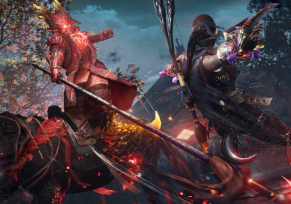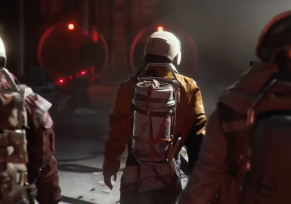The reviews are in, Lara Croft's "Tomb Raider" reboot is a resounding success. And with that success comes a massive shift in focus for the series. Developer Crystal Dynamics seems to have found a ripe balance between what "Tomb Raider" games used to be about and what the bestselling games on today's market do to get in the hands of as many gamers as possible.
Tomb Raider has already moved at least one million copies, so we know Crystal Dynamics achieved their goal. Let's take a look at which massively successful franchises might have helped Laura on her way to bona fide success, especially after so many years of so-so performance.
"Assassin's Creed"
Lara is one agile chick. Any (shanty) rooftop you see, expect to climb it, any chasm-crossing rope, expect to straddle it. Altair, Ezio and Connor of the "Assassin's Creed" franchise each had one dominant advantage as they stalked their prey - they could go anywhere they wanted in their grand, beautifully crafted open worlds. Lara's world is just as open, if a bit more streamlined, but in any gunfight or stealth scenario she can usually find more than a few ways to take down her enemies. With a heightened focus on gunplay, "Tomb Raider" does well to differentiate itself from the pack by melding it impeccably well with her agility.
"Uncharted"
Nathan Drake is an adventurer. His tales take him to exotic lands, have him perform insane stunts and survive the most epic of set-pieces this side of Playstation 3 gaming. While criticisms have been laid at Naughty Dog's limiting of gameplay in favor of cinematic flair, the games achieved a movie-style presentation unseen before. More than a few games have taken note, and throughout "Tomb Raider" you might get the sense you're playing some kind of spinoff. It's for better and worse. While the dynamic camera movement and focused, exciting plotline keep the game's adrenaline quotient up high, those big moments come a bit too often and wear out their surprise too early on. "Tomb Raider," while full of close-up, emotional moments for its protagonist, could have benefited from more serene, laid back moments than it had. Those optional tombs don't really count, though they're a blast to play.
"Far Cry"
"Far Cry 3" came out pretty recently, so it's a little tough to say how much it could possibly influenced "Tomb Raider" despite the jarring similarities between the two games. That said, "Far Cry 3" is pretty much a super-refinement of "Far Cry 2" and finds great success with it. The open world, the "come into your own" storyline paralleled between Lara and "Far Cry 3's" Brody and even an emphasis on fire as a weapon are big contributors to the two tropical games. "Far Cry 2" introduced animals as a solid way to keep the world believable and organic, and "Tomb Raider" pretty much cut and paste that idea. Your first real kill, an innocent dear, is an emotional moment for Lara. I wish I could say the same for the gung-ho, borderline psychopathic Brody.
"Call of Duty"
You can't have guns in a game without the ability to upgrade and customize. Thanks "Call of Duty." "Tomb Raider's" gunplay is far more fluid and dynamic, but that doesn't mean the guns need to have ten upgrades a piece. Developers know this is just another way to keep players interested, along with all the collectibles and tombs for raiding, so we're stuck with this idea along with the never-ending experience climb and pseudo-rpg elements the FPS behemoth made popular. And then there's that multiplayer mode, which I won't even go in to.
And yet, with all these pressures of modern gaming caving in, "Tomb Raider" manages to find its own space with a couple of unique, if small, innovations. Lara, among other things, is vulnerable, and not in the sense that Ezio has a hard life or Drake's misfortunes. Yes, they give Lara a hefty backstory, but in the gameplay itself her character gets batted around, tested and beaten up over and over again. Unlike most other games, when Lara trips or falters, her mistake is not her downfall but an element to ongoing gameplay. Resets only happen during the most brutal of kills, which Crystal Dynamics used as a complement to Lara's emotional vulnerability. Seeing her die in such brutal fashion was actually psychologically disturbing - a brave move. "Gears of War" and other brutal shooters might have tried to do this, but they never really developed a character worth caring about.
Lara is unlike any character in games before, even the "Tomb Raiders" that came before her. She's brave but afraid, vulnerable but powerful and beautiful yet dirtied up from bruises, cuts, impalements and other horrible, island-worthy injuries. She feels human when most video game characters are nothing more than virtual fantasy fulfillment to a maximum degree.








